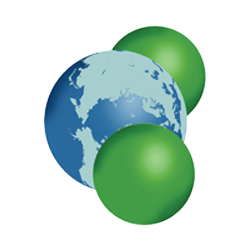
Sustainable Development Goals are estimated to fall short of 2030 targets for universal sanitation coverage and halving the proportion of untreated wastewater. Thermal treatment systems represent one potential pathway for centralized fecal sludge management at large scales. The development of thermal treatment systems has been accelerated through the Bill and Melinda Gates Foundation’s Reinvent the Toilet initiative. One of such systems have been coined Omni Processors (OPs), which can treat excreta from tens of thousands of people. However, it is unclear if OPs can be energy positive and affordable with relatively low environmental impacts. The objectives of this work are to characterize the financial viability and environmental implications of fecal sludge management via OP technology, and to elucidate the key drivers of system sustainability. Results demonstrate that the type of frontend (pit latrine or urine-diverting dry toilet) can contribute substantially to overall user costs, and in some cases, greenhouse gas emissions. Overall, the relatively low cost and emissions from this OP technology demonstrate that it should be a part of the collection of fecal sludge management practices to eliminate global sanitation gaps moving forward.
Presenter bio: Dr. Stetson Rowles is currently an Assistant Professor in the Department of Civil Engineering and Construction at Georgia Southern University. His research interests are at the interface of technology development and sustainable design, with a focus on advancing clean water and safe sanitation for unserved and historically marginalized communities. He completed his postdoctoral studies at the University of Illinois at Urbana-Champaign. He holds a Ph.D. and M.S. in Environmental Engineering from the University of Texas at Austin along with a Graduate Portfolio Certificate in Applied Statistical Modeling. He also holds a B.S. in Civil Engineering from the University of South Carolina. He is the co-founder of an educational non-profit organization, Clean Water Science Network, which provides mentoring and research opportunities for students from underserved communities in Latin American.
When: Wednesday, October 20, 2021, noon to 1p.m.
Where: ELIF 401 or Zoom